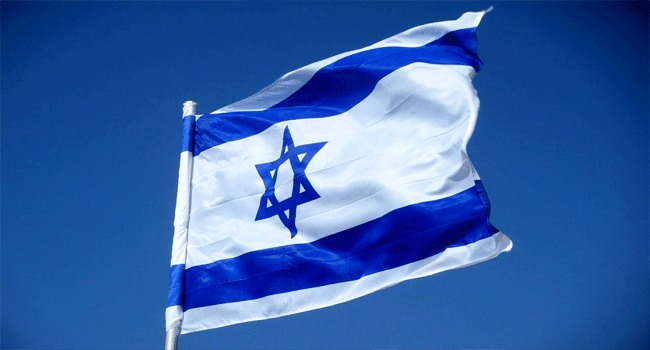Israel’s military has initiated orders for Palestinians to evacuate parts of eastern Rafah in anticipation of a “limited” military operation in the southern Gaza city.
Approximately 100,000 residents are being instructed to move to an “expanded humanitarian area” in Khan Younis and al-Mawasi.
After seven months of conflict, Israel asserts that taking control of Rafah is essential to defeat Hamas.
However, both the UN and the US have expressed concerns, warning that an attack on Rafah, where over a million displaced Palestinians are currently taking refuge, could lead to catastrophic outcomes.
A senior Hamas official has described the evacuation order as a “dangerous escalation.”
Overnight, Israeli airstrikes in Rafah resulted in the deaths of at least 19 Palestinians, following a Hamas rocket attack from the area that killed four Israeli soldiers at the nearby Kerem Shalom border crossing. This crossing is crucial for the entry of humanitarian aid into Gaza.
These incidents occurred as recent attempts to negotiate a new ceasefire and a hostage release agreement faced delays, though mediators have stated that they are persisting in their efforts.
In an initial briefing to journalists on Monday morning, Israel Defense Forces (IDF) spokesman Lt Col Nadav Shoshani emphasized that the military operation planned in Rafah would be of “limited scope”.
He noted that there was no set timeline for the operation, which would affect an estimated 100,000 people and be implemented gradually.
The IDF is communicating evacuation orders through text messages, flyers, and social media. One flyer, dropped from aircraft and written in Arabic, includes a map marking nine blocks in south-eastern Rafah where the IDF intends to conduct operations against terrorist organizations. These areas are al-Shuka, al-Salam, al-Janina, al-Yarmouk, and surrounding farmland near Kerem Shalom.
The flyer urges residents of these areas to evacuate immediately and move northward along the Mediterranean coast from al-Mawasi—an agricultural strip previously designated by the IDF as a “humanitarian zone”—to Khan Younis and the central town of Deir al-Balah.
The IDF said the expanded humanitarian area included “field hospitals, tents and increased amounts of food, water, medication and additional supplies”.
“An ongoing situation assessment will guide the gradual movement of civilians in the specified areas, to the humanitarian area,” it added.
The messages urging evacuation are unlikely to mitigate the fears of locals and over a million displaced Palestinians in Gaza’s southernmost city, as concerns grow about the possibility of a larger offensive.
For months, Israeli Prime Minister Benjamin Netanyahu has maintained that defeating Hamas requires a comprehensive offensive in the area.
Israel claims that Rafah is a stronghold for four remaining Hamas battalions, comprising thousands of fighters.
Israeli forces entered Gaza three weeks after Hamas fighters attacked southern Israel on October 7, resulting in approximately 1,200 deaths and the capture of over 250 hostages, as per Israeli records.
The conflict has resulted in over 32,490 fatalities in Gaza, as reported by the Hamas-run health ministry of the territory.
Western and Arab nations, along with the UN, have consistently cautioned against a broad ground operation in Rafah due to the high risk of civilian casualties.
Israeli officials and their counterparts from the US, Israel’s principal ally, have been exploring more targeted strategies, though it remains uncertain whether the recent evacuation orders are part of these discussions.
Following the IDF’s announcement, the UN agency for Palestinian refugees, UNRWA, which operates the largest humanitarian organization in Gaza, warned that the ramifications of a large-scale operation would be catastrophic for 1.4 million people.
“UNRWA is not evacuating: the agency will maintain a presence in Rafah as long as possible and will continue providing lifesaving aid to people,” it added in a post on X, formerly Twitter.
Hamas official Sami Abu Zuhri told Reuters news agency: “This is a dangerous escalation that will have consequences. The US administration, alongside the occupation, bears responsibility for this terrorism.”
Overnight, Israeli Defence Minister Yoav Gallant told US Defence Secretary Lloyd Austin in a telephone call that “military action is required, including in the area of Rafah”, citing Hamas’s attack on Kerem Shalom and its stance at the ceasefire negotiations in Cairo.
“Hamas continues to conduct attacks on the State of Israel and its citizens, while also indicating a lack of seriousness in regard to the frameworks that were submitted for the release of hostages,” Mr Gallant said, according to a statement from his office.
The US defence department said Mr Austin “reaffirmed his commitment to the unconditional return of all hostages and stressed the need for any potential Israeli military operation in Rafah to include a credible plan to evacuate Palestinian civilians and maintain the flow of humanitarian aid”.
Israel says 128 hostages remain unaccounted for in Gaza, at least 34 of whom are presumed dead. The remainder have been freed, rescued or their bodies recovered.



